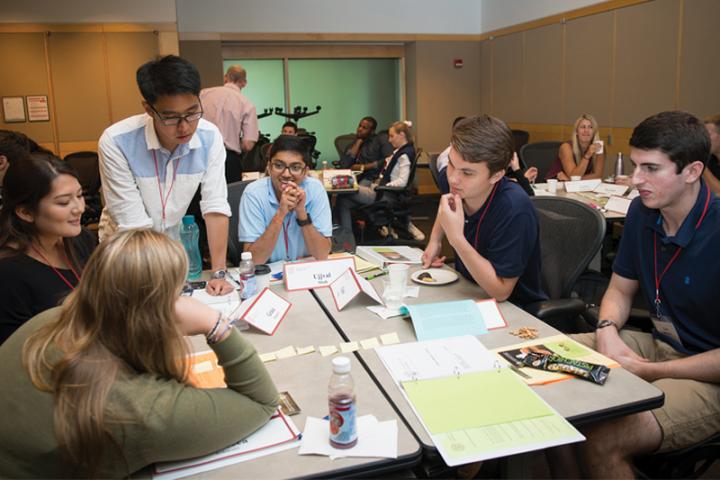
Scheinman Conflict Resolution Club
ILR students interested in conflict resolution and gaining skills outside of the classroom have a new home in the Scheinman Conflict Resolution Club, housed in the Scheinman Institute.
The club has provided the Scheinman Institute with a systematic way to engage with students, according to Associate Professor Ariel Avgar, club faculty adviser and the institute’s associate director for research and student engagement.
“We started the club last February as a way to connect with students in a more organized way and link them up with our many different activities,” Avgar said. “Starting in the fall, we brought together a group of interested students to make this a student-led group and they have done an amazing job this year.”
Among the activities organized this year, the club has hosted mediation simulations with Martin Scheinman '75, M.S. '76, John Bickerman ’78, MS ’79 and Jeff Shepardson of the Community Dispute Resolution Center in Ithaca.
“These simulations offered students the opportunity to observe nationally recognized mediators in action” Avgar said. “Students were able to see firsthand different mediation styles and their implications for the dispute resolution process.”
Zoe Kohl MILR ’18, co-president of the Scheinman Conflict Resolution Club, said she enjoyed gaining practical knowledge through the organization.
“After enjoying the content of conflict resolution classes, I wanted to further my classroom learning by gaining practical knowledge from professionals in the field,” Kohl said. “The club's goal is to increase the exposure of Cornell students to professional neutrals.”
Co-president Ethan Anderson ’18 became interested in mediation and arbitration after doing research at the Scheinman Institute during his sophomore year.
“The club helps introduce students to different forms of conflict resolution. Many students know about the court system and justice system where it is very legal,” Anderson said. “There are many different forms, there is arbitration, mediation and panels. Each one has its advantages and drawbacks.”
Avgar said, “Having both undergraduate and graduate student members is one of the features that makes this club unique.”
“It has been a really nice to watch this group that spans the different ILR degree programs come together as one cohesive club devoted to the advancement of conflict resolution skills at Cornell.”



